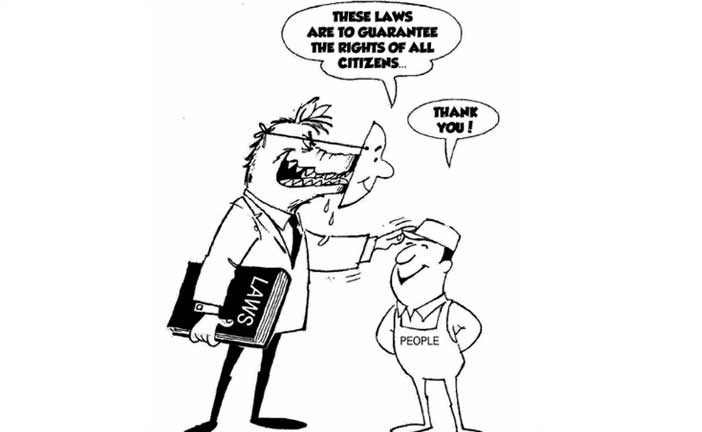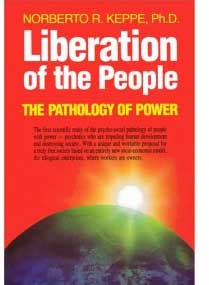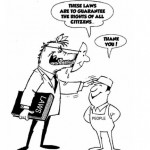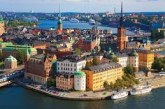
Rodrigo Angelico Pacheco Attorney and vice president of the Lusofone Association of Human Rights
“Can there not be a government in which majorities do not virtually decide right and wrong, but conscience? — in which majorities decide only those questions to which the rule of expediency is applicable? Must the citizen ever for a moment, or in the least degree, resign his conscience to the legislator? Why has every man a conscience, then? I think that we should be men first, and subjects afterward. It is not desirable to cultivate a respect for the law, so much as for the right. The only obligation which I have a right to assume, is to do at any time what I think right.” Henry David Thoreau, “On the Duty of Civil Disobedience”.
The philosophical argument that underlies civil disobedience is as follows: citizens have the moral right to obey the laws only if the legislators produce just laws. This because the government itself, which is simply the form that the people chose to execute their will, is still subject to prior abuses and perversions before the people act through it.
According to judicial theorists from Brazil and other nations, civil disobedience is a form of expression of the right of resistance, a type of Right of Exception, which despite being of a judicial nature needs no laws to guarantee it since it seeks to guarantee that other basic rights are respected. It is useful when public institutions are not fulfilling their faithful purpose and when there are no other legal remedies possible which guarantee the exercising of natural rights such as life, liberty and physical safety. In addition to civil disobedience, the right to strike is another example of resistance (to protect the rights of workers) and the right of revolution (to protect the right of the people to exercise their sovereignty when it is threatened).
Therefore we can conclude we have the right to disobey when we see a situation of extreme injustice. Of course, the way we protest and show our dissatisfaction should be equivalent and proportional to the action which caused the damage or constraint in the first place.
I write this article to remind the reader of that which seems to have been forgotten in the tangled chaos of laws: power belongs to the people. Always, at any given moment, there are individuals who think they have the right to wrongly appropriate that which legitimately belongs to all.
We are tired of obeying laws which oppose our nature, tired of playing the part of idiots or slaves, tired of not having any other alternative– of seeing ourselves deprived of the prosperity, health, peace and glory for which we are destined.
Henry David Thoreau, whose work inspired great men like Gandhi and Martin Luther King, said that legislators were possibly the greatest villains in the history of democracy and politics.
In 1986, Dr Norberto Keppe wrote Liberation of the People: The Pathology of Power, an in depth analysis of the psychopathology of power, getting to the root of the problem and proposing solutions to the dilemmas we confront today. The book serves as the basis and inspiration for many social conscientization movements.
The chapter “The laws were organized against the people” deserves special mention. In it Keppe writes: “The people’s lack of respect for the laws of the powerful or is it more of a lack of respect of the powerful who organize our lives and our laws in accordance with their vested interests? In this case, could it be that we have an obligation to respect each and every law, any regulation? Evidently not. In the meantime, so that we can avoid an armed fight, let us gradually create true social laws and organize society in accordance with justice.”
Here we clearly see that the Occupy Wall Street movement in NY,which in turn expanded to hundreds of other cities in 85 countries around the world, was fed by the spirit inherent in the civil disobedience of Thoreau as well as by the book “Liberation of the People.” What do the members of this movement allege? That the distribution of riches and their priorities are inverted and that the human being comes first and is more important than money.
I would like to end with another significant passage from Liberation of the People: “The people need to realize that capital cannot be used only by a few individuals for their own benefit. The people must wake up to the fact that money should be used to benefit them. Humanity is obviously half asleep, like the girl in the fairy tale (Sleeping Beauty), but since it is merely sleeping, it can and should be awakened — especially those individuals of worth, the social leaders — so that we can at last take charge of what is rightfully ours”. (Liberation of the People, Norberto R Keppe p 291).
Liberation of the People – The Pathology of the Power
 In this, his 17th book, Keppe turns his attention to the study of psycho-socio-pathology, specifically the study of the pathology of power and the power-seeker. In his view, “All of our present-day problems can be reduced to one and that is,” he writes, “the way in which social and economic power is being used.”
In this, his 17th book, Keppe turns his attention to the study of psycho-socio-pathology, specifically the study of the pathology of power and the power-seeker. In his view, “All of our present-day problems can be reduced to one and that is,” he writes, “the way in which social and economic power is being used.”
With extraordinary vision and clarity, this scientific, in-depth analysis explores the relationship between individual and social psychopathology, showing how the abuse of power in our social system has corrupted all facets of human endeavor, from work, to education and science, to the media and the arts.
Essential reading for anyone interested in contributing to a just and balanced society, this book is a dynamic call to action in defense of the basic human values of life, liberty and the pursuit of happiness.





